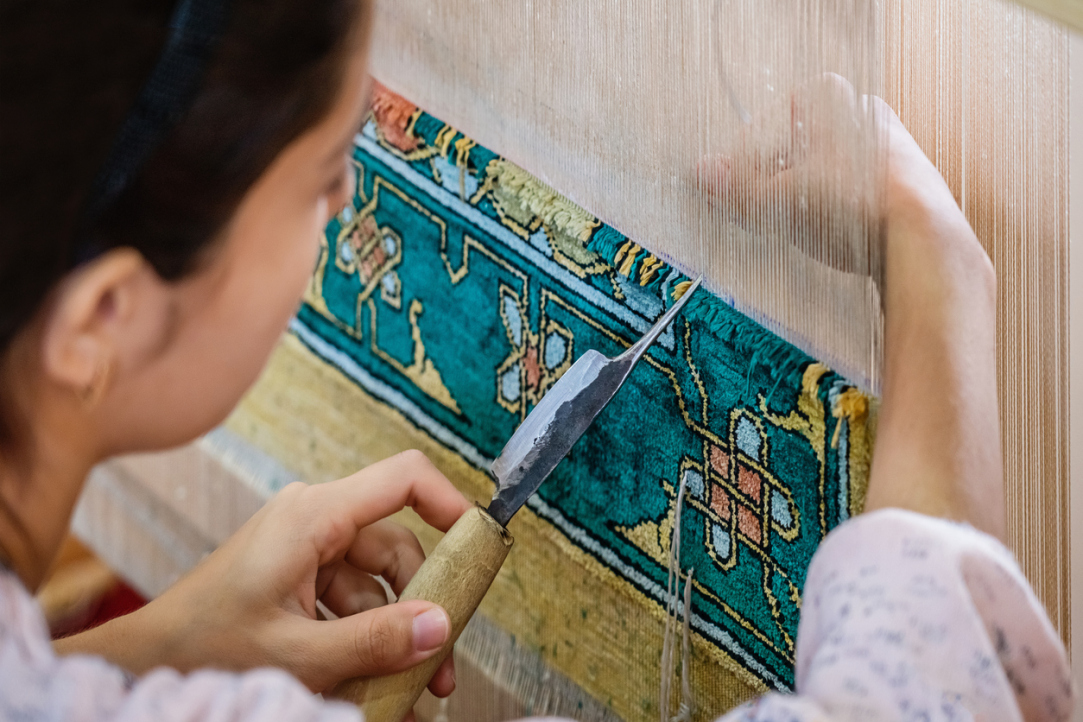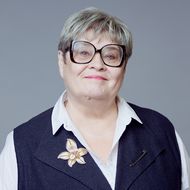‘The Development of Creative Industries Has Become a Priority for Both Russia and Uzbekistan’

The Tourism Development Institute under the Committee for Tourism of the Republic of Uzbekistan and HSE University have signed a cooperation agreement aimed at establishing and developing academic, cultural, and other partnerships in the fields of education and tourism. The initiative for signing the agreement came from the Institute for Creative Industries Development at the HSE Faculty of Creative Industries.
The agreement envisages the creation of educational programmes and the launch of joint projects.
International cooperation in education plays a key role in the development of human capital, the strengthening of scientific potential, and the formation of global academic networks. Partnerships between leading educational institutions provide access to advanced teaching methods, research practices, and double degree programmes, all of which contribute to the training of highly qualified specialists capable of meeting the modern labour market demands.
Such cooperation not only enriches the academic environment but also promotes intercultural dialogue, the development of innovative educational models, and the strengthening of countries’ positions in the international educational landscape.
The first joint initiative launched under the partnership was the international youth competition ‘The Culture of the Republic of Uzbekistan in Contemporary Design,’ organised in collaboration with the HSE Art & Design School, the DAFES Association, the Creative City platform, and supported by the Committee for Tourism of the Republic of Uzbekistan. The committee awarded a prize fund of 10 million, 7 million, and 5 million Uzbekistani soms to the first, second, and third prize winners, respectively.
The aim of the competition is to gather contemporary design solutions based on the intangible cultural heritage of Uzbekistan, emphasise its global significance, and highlight its role in enhancing the country’s tourism potential.

Tatyana Abankina, Academic Supervisor of the HSE Institute of Creative Industries Development, Candidate of Sciences in Economics
‘The development of creative industries has become a priority for both Russia and the Republic of Uzbekistan. Creative individuals are the backbone of the creative economy. A meeting in Vladivostok between colleagues from the Institute for Creative Industries at HSE University and representatives from Uzbekistan, held as part of the Russia–Uzbekistan Educational Forum ‘Education in Creative Industries: Shaping the Economy of the Future,’ laid the groundwork for cooperation in areas such as staff training, joint educational programmes, and collaborative projects in creative fields. The educational and research resources presented by the Institute for Creative Industries Development attracted great interest from our Uzbekistani colleagues at the Tourism Development Institute. In particular, the Creative City platform will serve as a hub for bringing together educational initiatives, creative projects, and individuals. The Genius of Place digital competition platform and the online/offline programme in Management in Creative Industries were also met with enthusiasm. Representatives of the ministry of Uzbekistan expressed interest in HSE University’s methodology and practical approach to assessing the creative potential of Russian regions. The establishment of direct contacts and participation in the international conference hosted by HSE University-St Petersburg provided an opportunity to define specific areas of collaboration and led to the drafting of a Cooperation Agreement between HSE University and the Tourism Development Institute of the Republic of Uzbekistan in the fields of education and science.’

Valery Gordin, Head of the Laboratory for Management in Culture and Tourism at HSE University-St Petersburg
‘The Laboratory for Management in Culture and Tourism at HSE University-St Petersburg has already established ties with the institute. Our Uzbekistani colleagues visited St Petersburg to participate in a seminar on cultural heritage, and our experts gave presentations at the VIII International Forum of Guides, hosted by the institute, focusing on new challenges and pathways for tourism development. We see the most promising areas of future collaboration with the Tourism Development Institute in research on the role of museums in the creation of tourism products in both Uzbekistan and Russia, as well as in the establishment of a professional development system for museum workers and tourism professionals. This will involve creating mechanisms for collaboration between these two sectors.’

Natalia Logutova, Deputy Director of the HSE Institute for Creative Industries Development
‘Enhancing the tourist appeal of regions through cultural heritage, traditional crafts and technologies, as well as developing local brands are major themes that are becoming the focus of research, analysis, and educational content for students across all programmes at the Institute for Creative Industries Development and HSE Art & Design School. Together, we have launched the Creative City platform—a community of professionals in the creative field, a kind of creative map originally built on student projects. Since then, it has expanded beyond HSE and even internationally, uniting projects from various regions and countries. This platform functions as a permanent competition system, gathering the best creative practices for working with local themes and attracting an international expert community. We hope our collaboration with the Tourist Development Institute of the Republic of Uzbekistan will lead to a significant expansion of the range and types of projects, thanks to both students participating in our joint programmes and initiatives exploring the cultural heritage of both countries. With the exchange of experiences, joint research, competitions, and exhibitions, we are looking forward to a long-term and fruitful cooperation.’
Elena Golysheva, Director of the Tourist Development Institute under the Committee for Tourism of the Republic of Uzbekistan, PhD in Economics, Senior Research Fellow
‘Undoubtedly, the signing of the cooperation agreement in education and research—initiated by the HSE Institute for Creative Industries Development—will contribute to the development of creative industries, the establishment of joint educational programmes, and the support of new youth initiatives.
This will help accelerate the promotion of cultural heritage, foster the implementation of innovative ideas, and enable the exchange of valuable experiences. Overall, this partnership is focused squarely on long-term outcomes and the mutual enrichment of academic and professional environments.
It is also essential that the agreement will contribute to training the specialists needed in creative industries. I would like to take this opportunity to once again express our gratitude to our Russian colleagues for their support and assistance in many areas. I have every confidence that our future collaboration will have a positive effect on the continued development of the tourism and creative infrastructure in both Russia and Uzbekistan.’
Alim Mukhitdinov, Head of the Department for Scientific and Innovative Projects at the Tourism Development Institute of the Republic of Uzbekistan
‘Our cooperation with HSE University opens up new horizons for joint research and education in the fields of tourism and creative industries. Signing this agreement between our two institutions is an important step towards the creation of an integrated scientific and educational platform capable of offering a modern perspective on tourism development—one that takes into account cultural, technological, and creative trends.
The Department for Scientific and Innovative Projects at the Tourism Development Institute sees particular value in the exchange of academic approaches, the implementation of joint research, the launch of educational initiatives and youth competitions such as ‘The Culture of the Republic of Uzbekistan in Contemporary Design.’ These projects help to reveal our country’s unique cultural potential and establish new standards in training professionals for the tourism sector.
We hope that this growing cooperation will serve as a strong foundation for a sustainable partnership focused on generating new knowledge, developing human capital, and promoting Uzbekistan’s cultural heritage on the international stage.’
See also:
Scientists Show That Peer Influence Can Be as Effective as Expert Advice
Eating habits can be shaped not only by the authority of medical experts but also through ordinary conversations among friends. Researchers at HSE University have shown that advice from peers to reduce sugar consumption is just as effective as advice from experts. The study's findings have been published in Frontiers in Nutrition.
HSE University to Host Second ‘Genetics and the Heart’ Congress
HSE University, the National Research League of Cardiac Genetics, and the Central State Medical Academy of the Administrative Directorate of the President will hold the Second ‘Genetics and the Heart’ Congress with international participation. The event will take place on February 7–8, 2026, at the HSE University Cultural Centre.
HSE University Develops Tool for Assessing Text Complexity in Low-Resource Languages
Researchers at the HSE Centre for Language and Brain have developed a tool for assessing text complexity in low-resource languages. The first version supports several of Russia’s minority languages, including Adyghe, Bashkir, Buryat, Tatar, Ossetian, and Udmurt. This is the first tool of its kind designed specifically for these languages, taking into account their unique morphological and lexical features.
Language Mapping in the Operating Room: HSE Neurolinguists Assist Surgeons in Complex Brain Surgery
Researchers from the HSE Center for Language and Brain took part in brain surgery on a patient who had been seriously wounded in the SMO. A shell fragment approximately five centimetres long entered through the eye socket, penetrated the cranial cavity, and became lodged in the brain, piercing the temporal lobe responsible for language. Surgeons at the Burdenko Main Military Clinical Hospital removed the foreign object while the patient remained conscious. During the operation, neurolinguists conducted language tests to ensure that language function was preserved.
HSE Scientists Use MEG for Precise Language Mapping in the Brain
Scientists at the HSE Centre for Language and Brain have demonstrated a more accurate way to identify the boundaries of language regions in the brain. They used magnetoencephalography (MEG) together with a sentence-completion task, which activates language areas and reveals their functioning in real time. This approach can help clinicians plan surgeries more effectively and improve diagnostic accuracy in cases where fMRI is not the optimal method. The study has been published in the European Journal of Neuroscience.
Transition to Sustainable Development Requires Deep Structural Transformation of Business
A group of researchers has proposed assessing the ESG transformation of businesses through the partner turnover ratio in raw material and distribution supply chains. The researchers note that the path towards sustainability requires a deep and often costly restructuring of partner networks. This and other papers were presented at the Third International Annual Conference ‘ESG Corporate Dynamics: the Challenges for Emerging Capital Markets.’
HSE Researchers Offer Guidance to Prevent Undergraduate Burnout
Researchers at the HSE Institute of Education have identified how much time students should ideally devote to their studies, extracurricular activities, and personal life to maintain strong academic performance without compromising their mental health. An analysis of responses from 2,753 students, combined with their actual academic results, revealed several risk factors—such as excessive homework—as well as positive factors, including sufficient sleep, regular exercise, and moderate participation in projects. Based on these findings, the researchers developed practical recommendations for both students and universities. The paper has been published in the European Journal of Education.
HSE University Hosts China Academy of Art Delegation to Strengthen Academic and Research Cooperation
On December 12, HSE University welcomed a delegation from the China Academy of Art — one of the most prestigious creative universities in Asia. The visit built on the dialogue launched in September and reaffirmed the mutual interest in collaboration outlined during the visit of Natalia Logutova, Deputy Director of the HSE Institute for Creative Industries Development, to the academy’s campus in Hangzhou. The parties discussed ideas that could form the foundation for long-term partnership—from digital reconstructions of historical spaces to joint educational programmes and research initiatives.
HSE Scientists Contribute to Development of Postquantum Ring Signature for Sber
A new cryptographic data protection mechanism has been jointly proposed by experts from the HSE Tikhonov Moscow Institute of Electronics and Mathematics, Sber, and QApp. The researchers have developed a postquantum ring signature scheme that ensures anonymity (within a defined group of participants), as well as the integrity and authentication of the source of digital transactions, even in the presence of an adversary equipped with a quantum computer.
‘National Symbols of States Are an Integral Part of Cultural Code’
In December 2025, HSE University hosted the first Forum of the BRICS Law Schools Consortium organised by the HSE Faculty of Law. The forum brought together 42 international delegates (including 10 deans) from 14 universities in Belarus, China, South Africa, India, and Indonesia. The programme included expert discussions, the signing of cooperation agreements, and the adoption of decisions on the future areas of activity of the BRICS Law Schools Consortium, which was established at the initiative of the HSE Faculty of Law.


